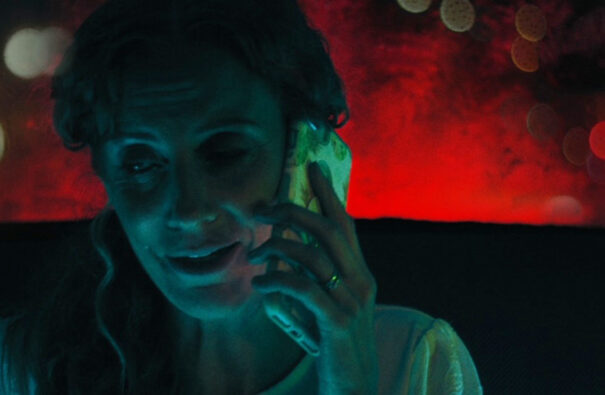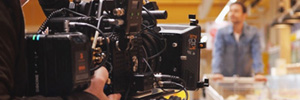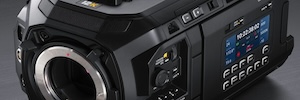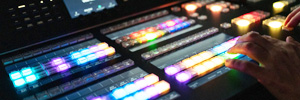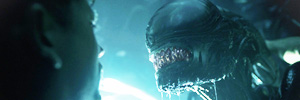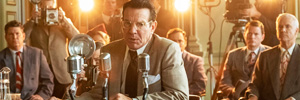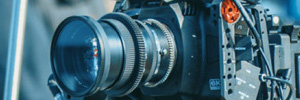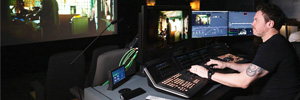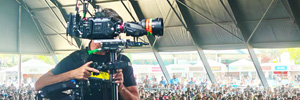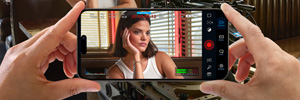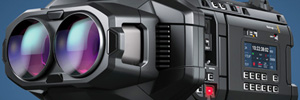‘Night Caller’, shot with the Blackmagic URSA Mini Pro 4.6K G2
ザ Blackmagic Design URSA Mini Pro 4.6K G2 was the camera of choice for director Chad Ferrin and cinematographer Kyle McConaghy to shoot Night Caller.
Filmmaker Chad Ferrin, known for films such as Exorcism at 60,000 Feet and The Deep Ones, decided to shape Night Caller from a different perspective than his recent films: “The Deep Ones’ was such a success artistically and financially,” said Ferrin, “that it sort of injected all of us with a dose of ‘Roger Corman inspiration’ to just get few bucks together and crank out a modest budget, quick turn around film.”
Along with cinematographer Kyle McConaghy, Ferrin analyzed films from the ’70s and ’80s that evoked a gritty, somber environment, which was the style they wanted to achieve in Night Caller. After this period of analysis, the duo settled on the URSA Mini Pro G2: “The G2 is amazing. I’ve filmed a few features on it now and I appreciate it more every time. The functionality is great and the image is so organic and film like. I shot with a different camera on my last feature, and I regretted not using the URSA almost every minute of the shoot!”
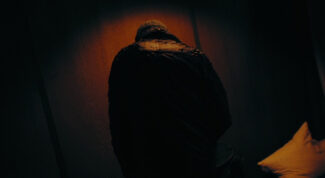
10 days of shooting
Versatility and adaptability were two constants of the shoot, as the Night Caller team had only 10 days to shoot. Also, with a limited budget, they took full advantage of natural light. McConaghy reports that the shooting experience was satisfactory despite these constraints: “The URSA Mini Pro isn’t always given credit for its low light ability. But it really does such a great job capturing detail even when you have to push the exposure. In one pivotal scene, Clementine visits the site of a murder by this long outdoor staircase. It was a night scene, but with only the not so bright street lights and one Astera light tube, we were able to effectively light a very large space and maintain so much detail in shadows.”
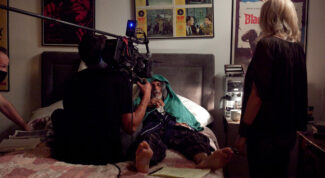 There are more examples of the Blackmagic Design camera’s performance: “In one scene, Clementine has a conversation with her psychic colleague in the lobby. The practicals of the lobby were these presumably old fluorescents underneath this dirty, off white plastic. We didn’t have the time or budget to replace the bulbs or augment with additional lights, so I just went with the natural lighting. That is now maybe my favorite look in the film. The Blackmagic color science looks so much like film stock and was able to render us this really great filmic texture,” says McConaghy.
There are more examples of the Blackmagic Design camera’s performance: “In one scene, Clementine has a conversation with her psychic colleague in the lobby. The practicals of the lobby were these presumably old fluorescents underneath this dirty, off white plastic. We didn’t have the time or budget to replace the bulbs or augment with additional lights, so I just went with the natural lighting. That is now maybe my favorite look in the film. The Blackmagic color science looks so much like film stock and was able to render us this really great filmic texture,” says McConaghy.
In order to evoke the classic style of the 1970s and 1980s, it was necessary to embrace more color and saturation. According to McConaghy, the URSA Mini Pro 4.6K was up to the task, as “ the color rendering of the G2 is second to none.”
Post production with DaVinci Resolve
In addition to being responsible for the photography, McConaghy also color-keyed the feature in DaVinci Resolve. His goal was to recreate the look and feel of celluloid. To do this, the creative created a LUT by adding “a healthy dose of grain.” McConaghy then used that table in G2 as a reference in order to recreate the look correctly.
Finally, McConaghy says that much of the success of the final shoot was due to the use of Blackmagic RAW, which also facilitated the post-production processes: “Shooting Blackmagic RAW was amazing. It’s so forgiving and natural and it lent itself to being pushed. I think we filmed the whole feature in Constant Quality Q0, and only had around 6 TB of footage.”
¿Te gustó este artículo?
Suscríbete a nuestro RSSフィード Y no te perderás nada.



